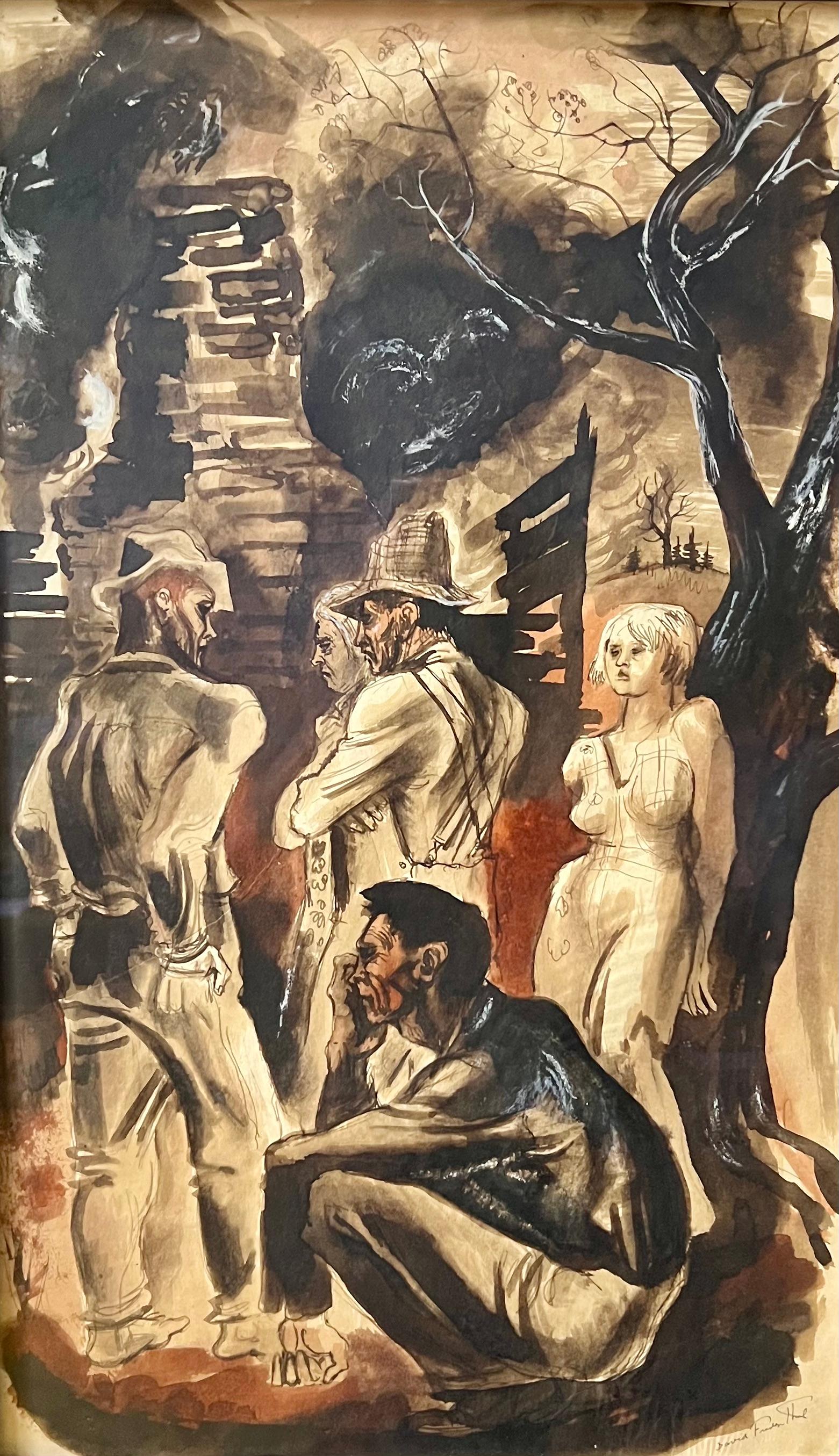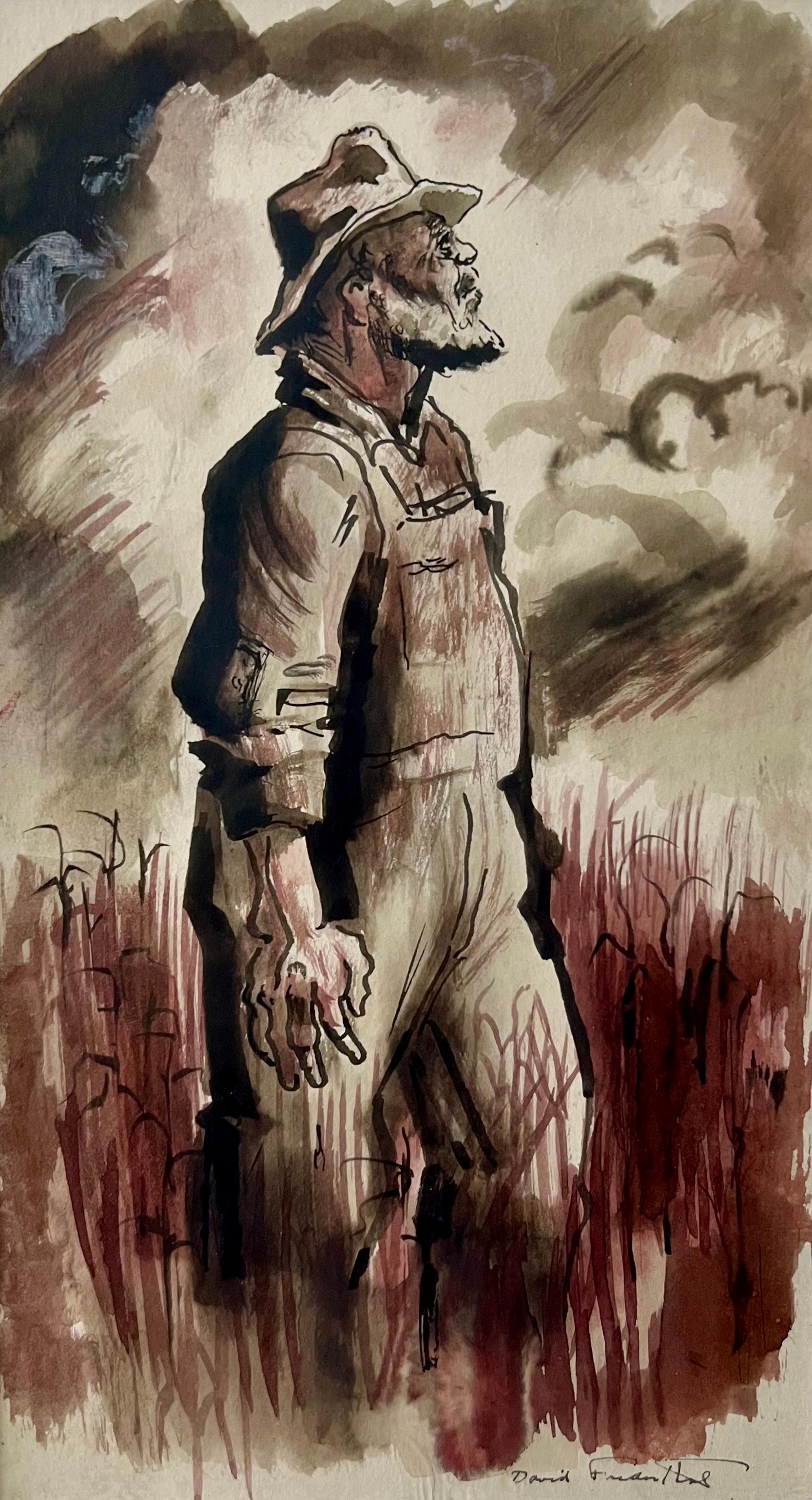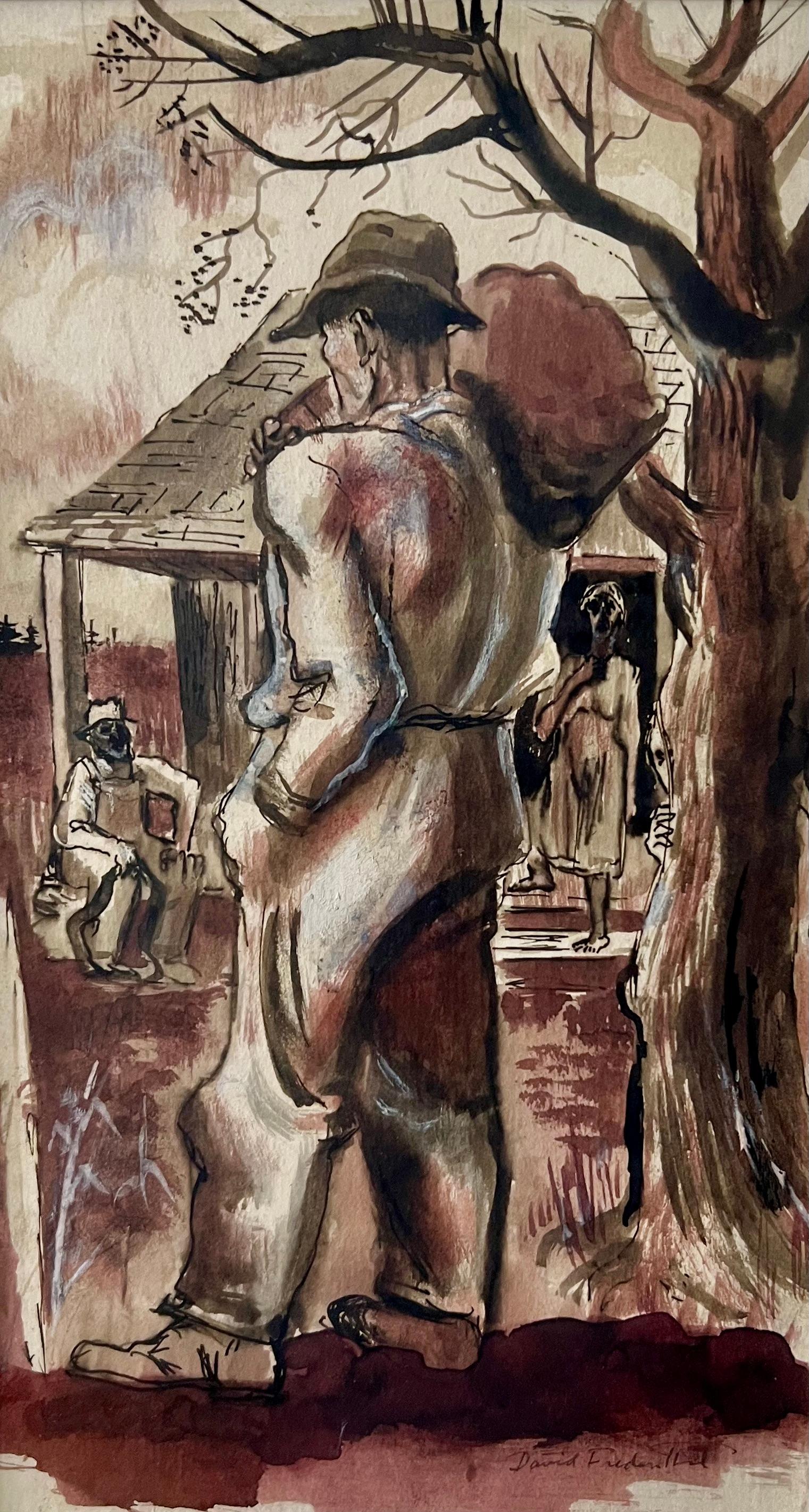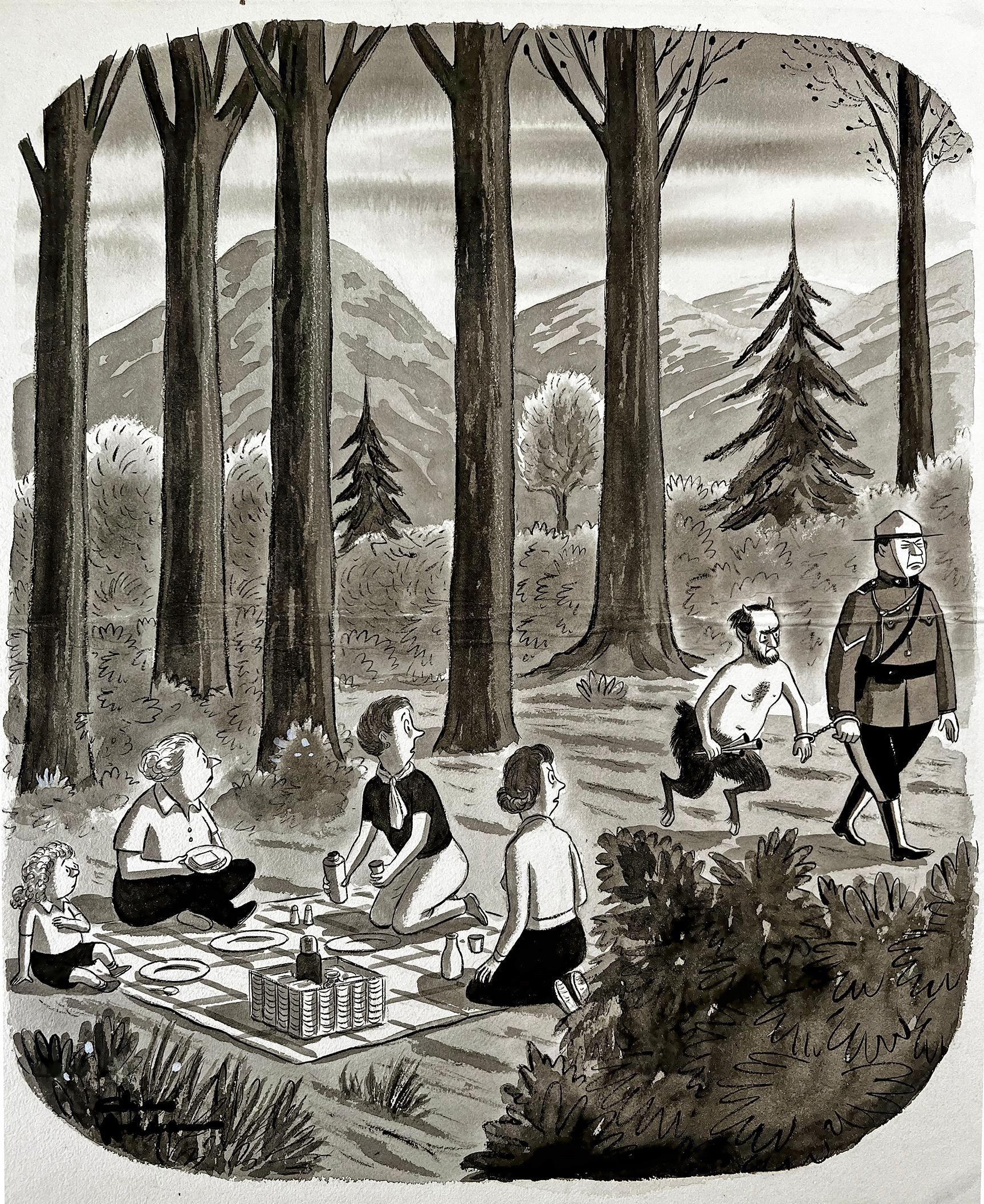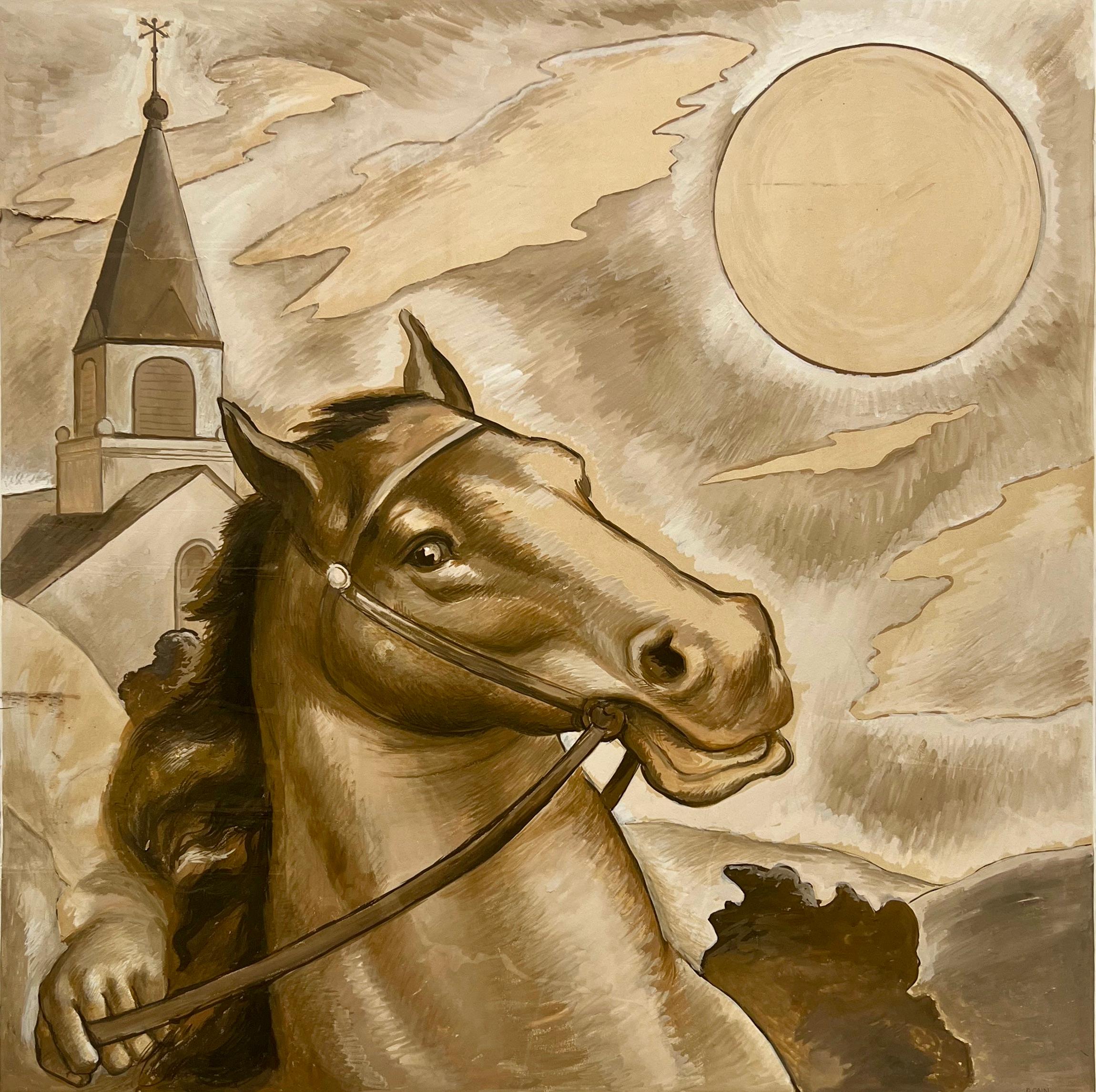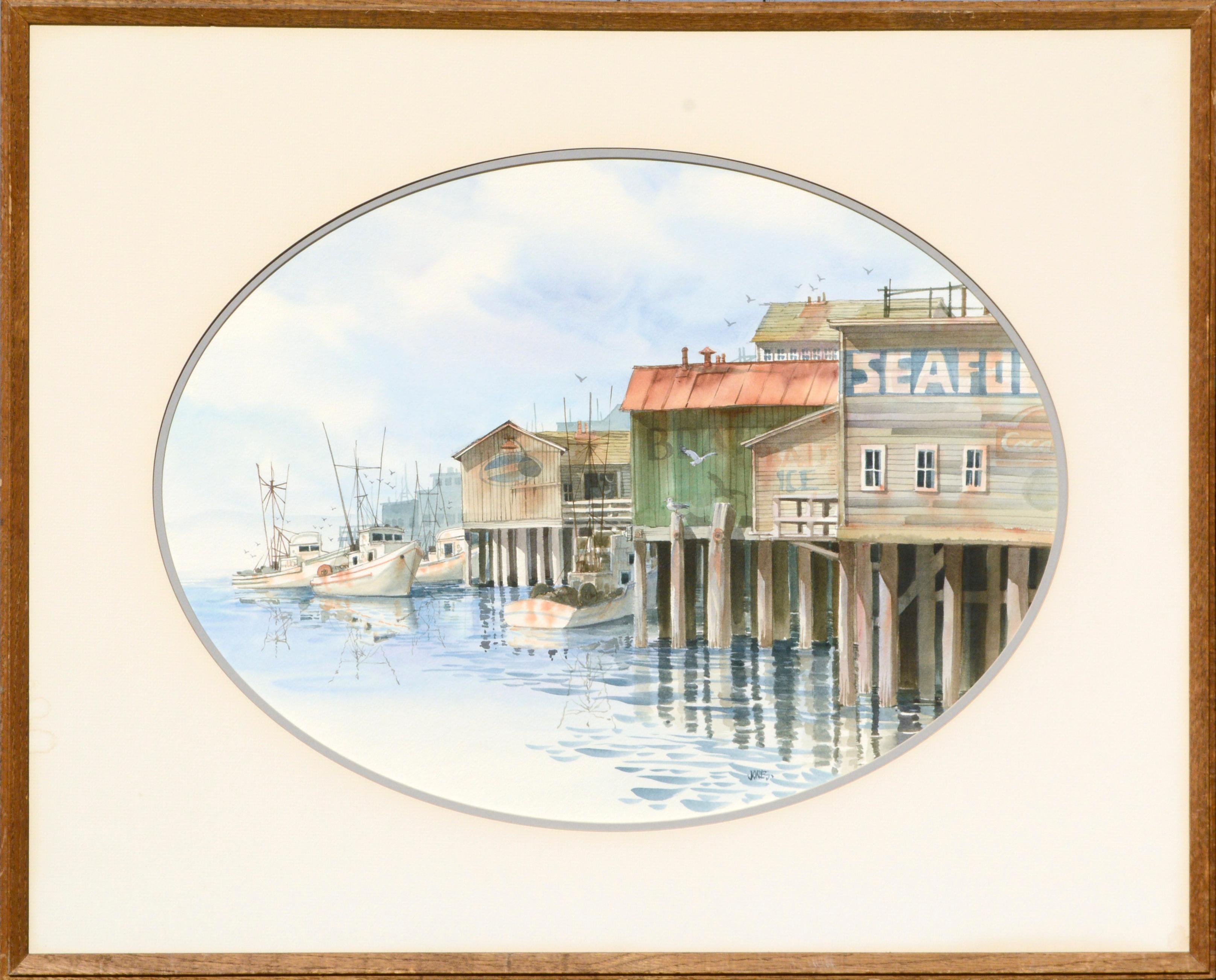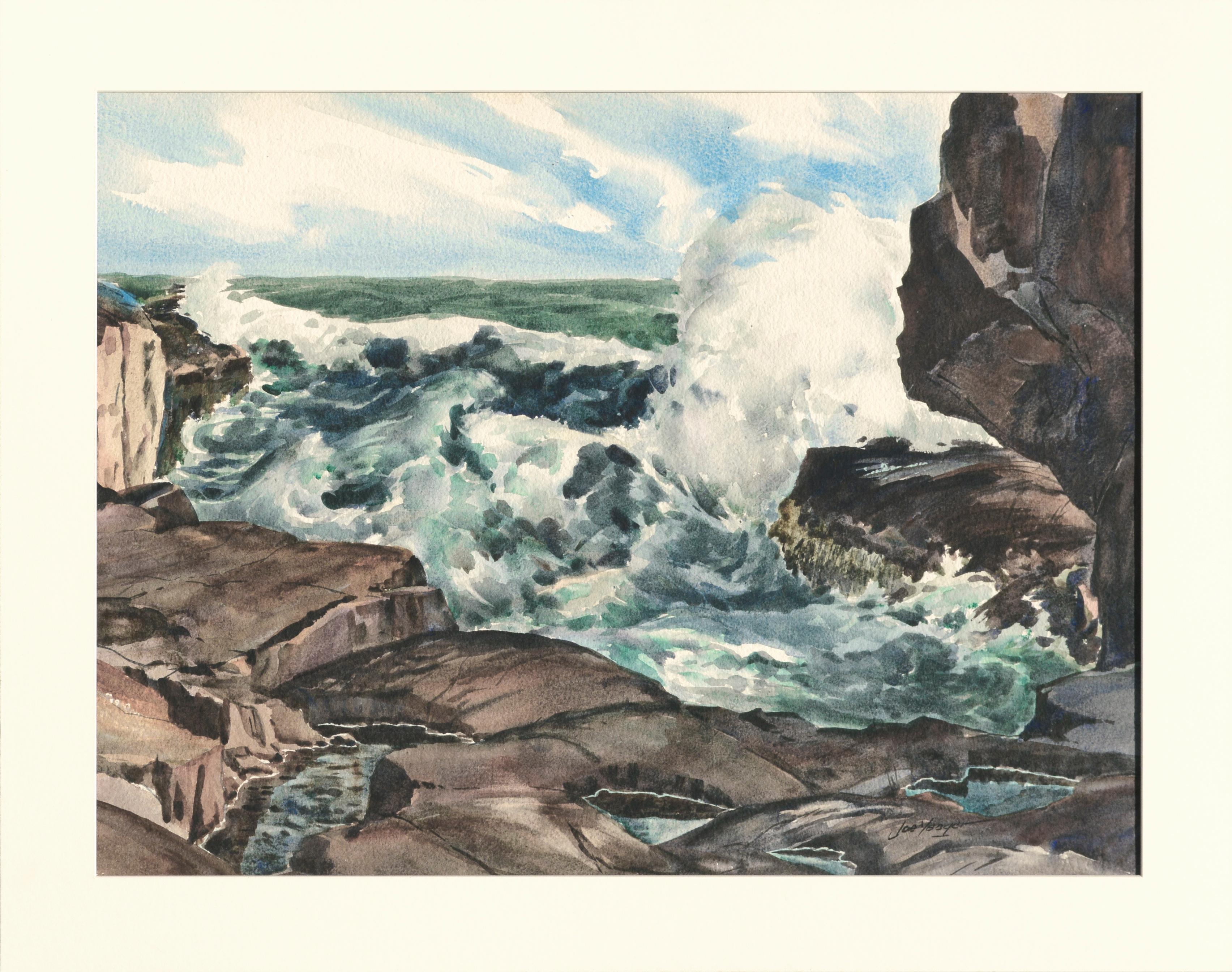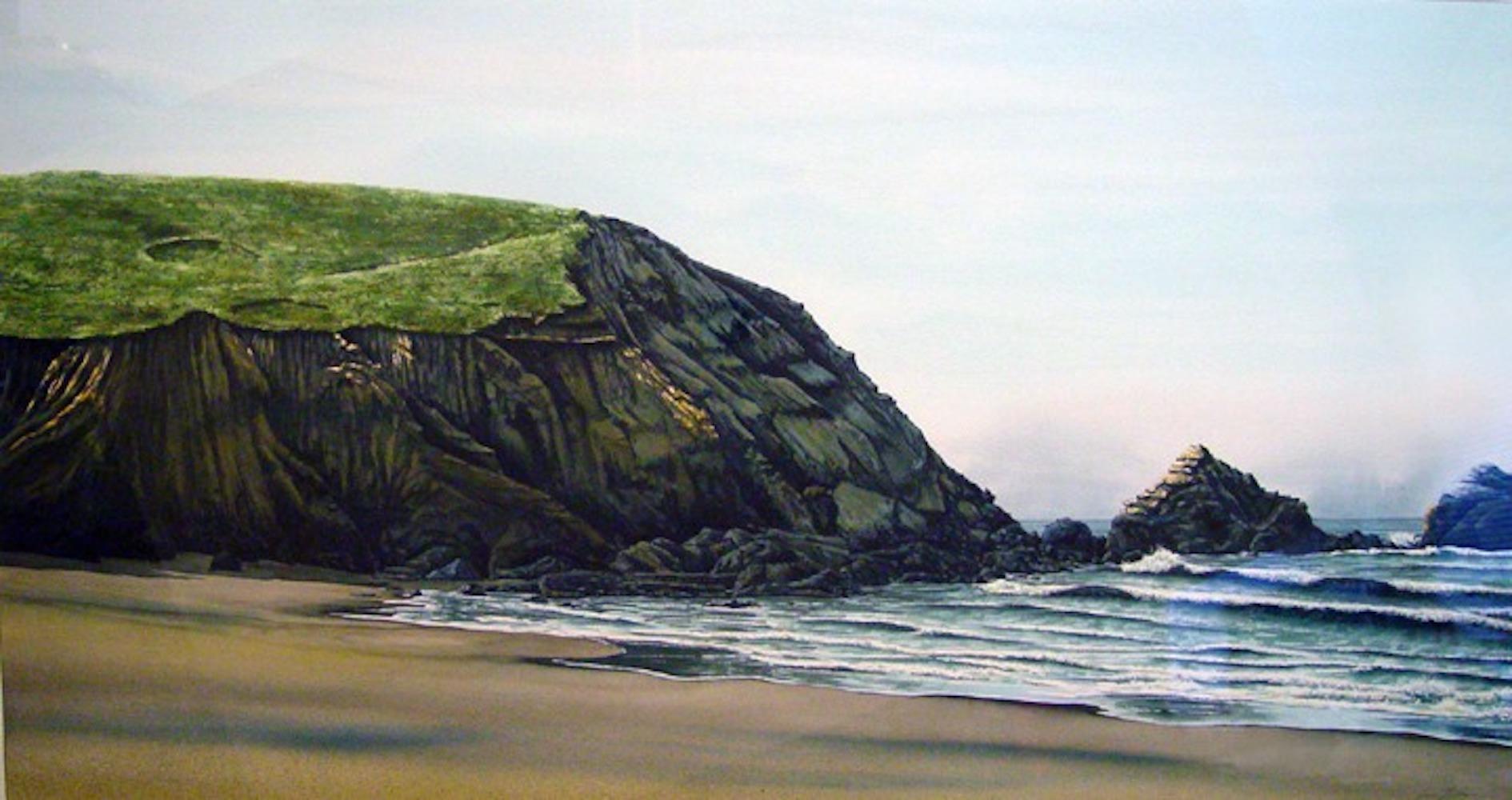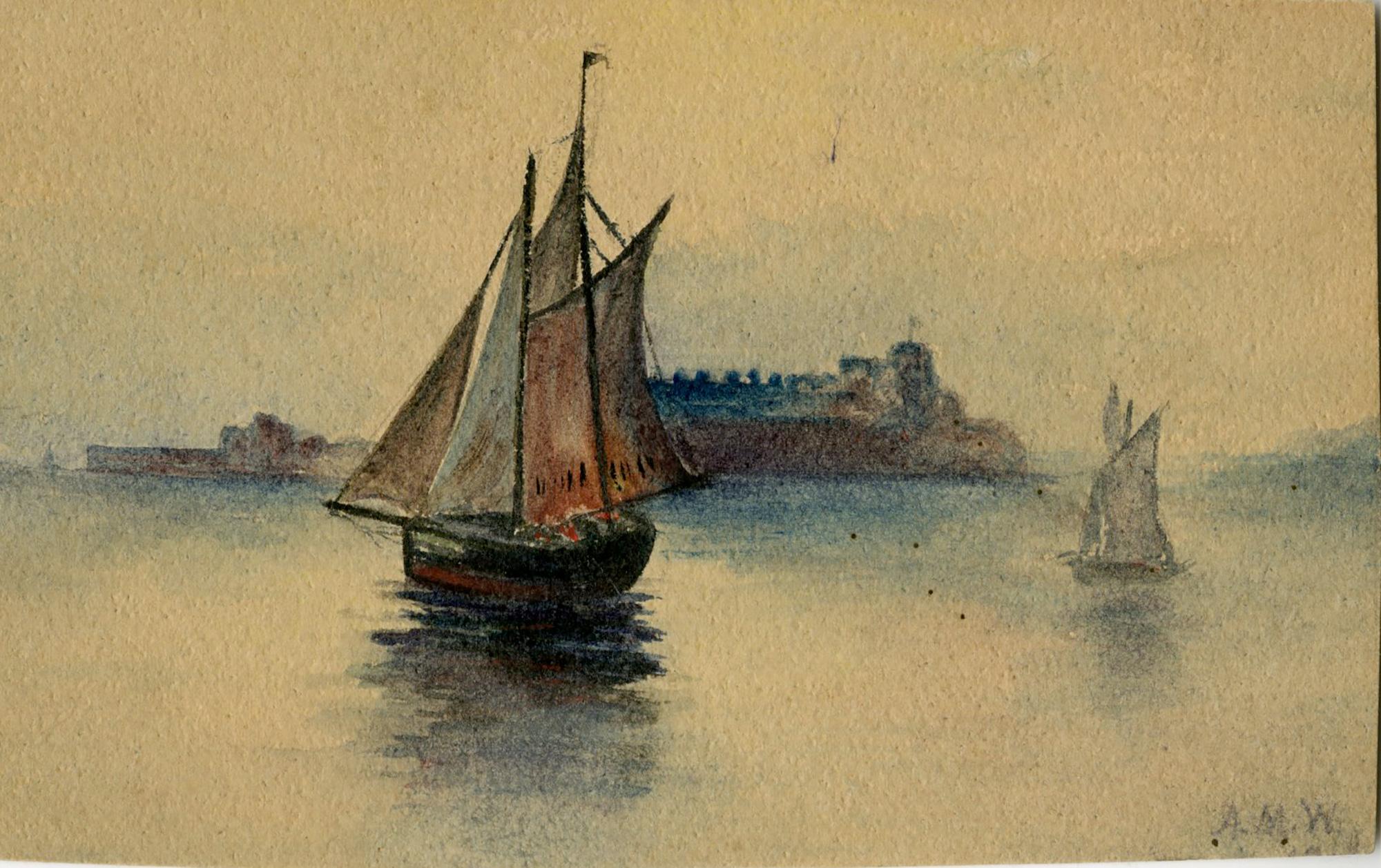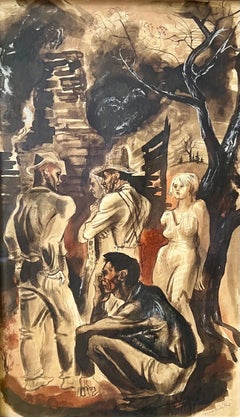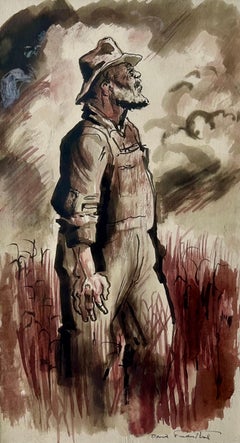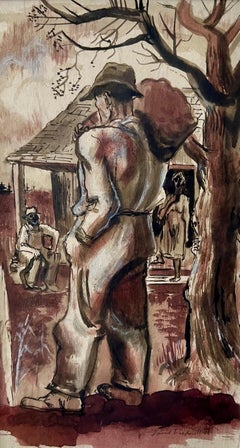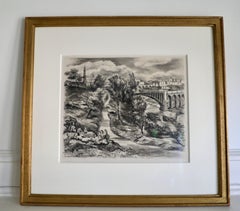
Mildred E. Williams, Ink and Wash Drawing, New York City Park Scene
View Similar Items
1 of 6
Mildred E. WilliamsMildred E. Williams, Ink and Wash Drawing, New York City Park Scenec. 1930s
c. 1930s
About the Item
- Creator:Mildred E. Williams (1892 - 1967)
- Creation Year:c. 1930s
- Dimensions:Height: 18.38 in (46.69 cm)Width: 20 in (50.8 cm)
- Medium:
- Movement & Style:
- Period:
- Condition:Excellent estate condition. All over toning to paper. Not examined out of frame.
- Gallery Location:Providence, RI
- Reference Number:1stDibs: LU136426197812
You May Also Like
- "Tobacco Road" Mid 20th Century Realism 1940 Drawing from the Novel WPA LiteraryBy David FredenthalLocated in New York, NY"Tobacco Road" Mid 20th Century Realism 1940 Drawing from the Novel WPA Literary 19 1/4 x 11 1/2 (sight), Signed David Fredenthal lower right. Framed by ...Category
1930s American Realist Figurative Drawings and Watercolors
MaterialsPaper, Ink, Watercolor
- TOBACCO ROAD Mid 20th Century Realism 1940 Drawing from the Novel WPA Literary 3By David FredenthalLocated in New York, NYTOBACCO ROAD Mid 20th Century Realism 1940 Drawing from the Novel WPA Literary 3 10 1/2 x 6 (sight), Signed David Fredenthal lower right. Framed by Lowy. Offered here is one of several original drawings by WPA artist David Fredenthal that were first published in the 1940 illustrated edition of the novel TOBACCO ROAD by Erskine Caldwell. Background on the Drawing Erskine Caldwell remarked, on seeing the work of David Fredenthal, 26-year-old painter: "That boy could draw my Tobacco Road people." A casual comment, it was enormously productive. The young painter was just finishing a two-year Guggenhcim Fellowship, preceded by a year's study in Paris, two one-man shows at New York's Downtown Gallery, and a fellowship at the Cranbrook Academy near Detroit. He was out in Colorado Springs when he heard what Caldwell had said about him. Fredenthal hadn't read Tobacco Road. He had not even seen the play - now breaking all records in its seventh year on Broadway. But he swapped a portrait for a second-hand Ford and headed East. In New York he learned that Dnell, Sloan & Pearce were bringing out a deluxe edition of Tobacco Road. But he had no entrée to the publishers, and Caldwell, to his disappointment, was out of town. So he drove on to Georgia to have a look at the Tobacco Road people. He found Dr. I. C. Caldwell, the author's father, in Wrens, Ga., going on his ministerial rounds among people like the Lesters. Fredenthal got a room from a couple who ran a 1-pump filling station...Category
1930s American Realist Figurative Drawings and Watercolors
MaterialsPaper, Ink, Watercolor
- TOBACCO ROAD Mid 20th Century Realism 1940 Drawing from the Novel WPA Literary 2By David FredenthalLocated in New York, NYTOBACCO ROAD Mid 20th Century Realism 1940 Drawing from the Novel WPA Literary 2 10 1/2 x 6 (sight), Signed David Fredenthal lower right. Framed by Lowy....Category
1930s American Realist Figurative Drawings and Watercolors
MaterialsPaper, Ink, Watercolor
- Environmental Prognostication Coil Narrative "Homo Sapiens R.I.P."Located in Miami, FL"They paved paradise and put up a parking lot," Joni Mitchell said. - - Created in 1969, at the dawn of the American environmental movement, artist Richard Erdoes draws a sequential narrative in the form of a coil. From inception to destruction, it illustrates a list of things that humans are doing to destroy the world we live in. The work was commissioned for school-age humans and executed in a whimsically comic way. Yet the underlying narrative is sophisticated and foreshadows a world that could be on the brink of ecological disaster. Graphically and conceptually, this work exhibits an endless amount of creativity and Erdoes cartoony style is one to fall in love with. Signed lower right. Unframed 12.4 inches Width: 12.85 inches Height is the live area. Board is 16x22 inches. Richard Erdoes (Hungarian Erdős, German Erdös; July 7, 1912 – July 16, 2008) was an American artist, photographer, illustrator and author. Early life Erdoes was born in Frankfurt,to Maria Josefa Schrom on July 7, 1912. His father, Richárd Erdős Sr., was a Jewish Hungarian opera singer who had died a few weeks earlier in Budapest on June 9, 1912.After his birth, his mother lived with her sister, the Viennese actress Leopoldine ("Poldi") Sangora,He described himself as "equal parts Austrian, Hungarian and German, as well as equal parts Catholic, Protestant and Jew..."[4] Career He was a student at the Berlin Academy of Art in 1933, when Adolf Hitler came to power. He was involved in a small underground paper where he published anti-Hitler political cartoons which attracted the attention of the Nazi regime. He fled Germany with a price on his head. Back in Vienna, he continued his training at the Kunstgewerbeschule, now the University of Applied Arts, Vienna.[5] He also wrote and illustrated children's books and worked as a caricaturist for Tag and Stunde, anti-Nazi newspapers. After the Anschluss of Austria in 1938 he fled again, first to Paris, where he studied at the Academie de la Grande Chaumiere, and then London, England before journeying to the United States. He married his first wife, fellow artist Elsie Schulhof (d. xxxx) in London, shortly before their arrival in New York City. In New York City, Erdoes enjoyed a long career as a commercial artist, and was known for his highly detailed, whimsical drawings. He created illustrations for such magazines as Stage, Fortune, Pageant, Gourmet, Harper's Bazaar, Sports Illustrated, The New York Times, Time, National Geographic and Life Magazine, where he met his second wife, Jean Sternbergh (d. 1995) who was an art director there. The couple married in 1951 and had three children.[6] Erdoes also illustrated many children's books. An assignment for Life in 1967 took Erdoes to the Pine Ridge Indian Reservation for the first time, and marked the beginning of the work for which he would be best known. Erdoes was fascinated by Native American culture, outraged at the conditions on the reservation and deeply moved by the Civil Rights Movement that was raging at the time. He wrote histories, collections of Native American stories...Category
1960s American Realist Landscape Drawings and Watercolors
MaterialsInk, Gouache, Illustration Board
- Nonconformist Removed by the State. Satyr / Pan MythologyLocated in Miami, FLThis cartoon by Charles Addams is generations ahead of its time. To get the punch line, you need to know the meaning of a Satyr or Pan. Satyr: Part man and part beast. - A male nature spirit with ears and a tail resembling those of a horse, as well as a permanent, exaggerated permanent erection. Early artistic representations sometimes include horse-like legs; Satyrs were characterized by their vulgar, indecent ribaldry, and were rowdy lovers of wine, music, dancing, and women. They inhabited remote locales, such as woodlands, and they often attempted to seduce or rape nymphs and mortal women alike. It's prudish 1950s America, where TV programs show husband and wife sleeping in separate beds. The discussion and representation of sex was repressed. To make a bold statement about censorship and the uncompromising moral climate of the time, Addams uses a reference from the mythical world to make a statement about the real world. In doing so, he anticipates the sexual revolution of the late 1960s and 1970s. The satyr/pan symbolizes nonconformistism. He has his own earthy customs, attitudes, and ideas. Because of that is being handcuffed and formally taken away by the state whose goal is to repress natural erotic fun and frolic that is ubiquitous in todays society. A proper and perfectly pressed Park Ranger cleans out a lustful undesirable from pristine woodlands. With startled expressions, a vulnerable family of correct women witness the event as they are about to have a picnic. The Satyr grasps his Pipes of Pan just over his crotch. The background is populated by phallic symbols. This is one a the rare instances where Addams address the issue of sex. The Ranger is a dead ringer as a self portrait of Addams. Original illustration for a cartoon, showing a uniformed ranger leading away a manacled satyr, in front of a startled picnic party. Ink and grisaille wash on Whatman cold press illustration board, signed "Chas Addams...Category
1950s American Realist Figurative Drawings and Watercolors
MaterialsWatercolor, Ink
- Bronx Post Office Mural Study WPA Horse Social Realism Mid 20th Century ModernBy Jo CainLocated in New York, NYBronx Post Office Mural Study WPA Horse Social Realism Mid 20th Century Modern Jo Cain (1904 - 2003) Couriers of History Bronx Post Office Mural Study Horse in the Sun (with two ad...Category
1930s American Realist Animal Drawings and Watercolors
MaterialsInk, Gouache, Board
Recently Viewed
View AllMore Ways To Browse
Gold Palmer
Palmer Lithograph
Mildred Williams
Sylvester Stannard
Thomas Schaller
Albert Rutherston
Don Swann
Laurence Sisson On Sale
Augustus Osborne Lamplough
Arthur Severn
Georges Marchou
Tiffany London Charms
Travelers 1861
Claude Muncaster On Sale
Charles Wyllie
Tiffany London Charm
William Clothier Watts On Sale
Monet Hammered Gold
